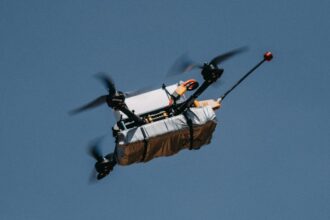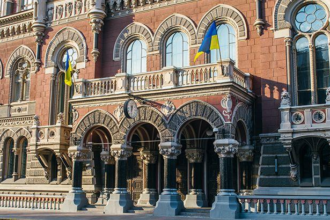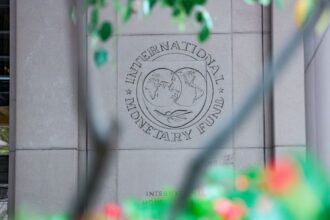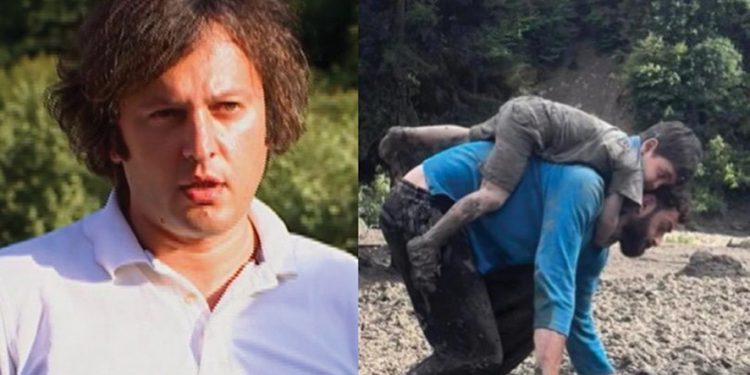On August 3, a massive landslide that swept through the area left a trail of destruction, and even the deaths of children.
As rescue and recovery efforts continue, the true tragedy of the disaster is becoming painfully apparent. The latest reports confirm the death toll is now 26. Seven more people are still missing. A total of 210 individuals were successfully evacuated out of the disaster area, a difficult process.
The disaster sparked a heated debate not only about the circumstances of the incident, but also about the subsequent response and rescue operations. The Ministry of Internal Affairs of Georgia was at the forefront of this operation, coordinating the search efforts at the epicenter of disaster and along both the Rioni River and Chanchakhi River.
The use of helicopters and unmanned aerial vehicles (UAVs) in search and rescue operations has been a controversial topic of discussion. Vakhtang Gomelauri addressed the delay in helicopter arrivals this week by highlighting the challenges posed due to adverse weather conditions. Gomelauri explained to the media that, while the Ministry of Internal Affairs has acquired night flight capability, they prioritize pilots’ safety and do not engage in risky operations unless there is a genuine threat to human life.
“The helicopters arrived in Shovi within three hours. A helicopter is not a vehicle that you can just jump in and drive out of. It requires preparation. The weather was bad. They had to fly through the clouds to reach the valley. They still managed to do it. They worked. And they flew into the territory, where there were 70 individuals. “There was a danger, and we didn’t wish to risk flying. We took the remaining survivors out the next day.
“I have explained a hundred times why they did not fly at night. Those who are familiar with aviation will understand. We have night flight capabilities, we’ve bought them, and we can fly. But if the risk is high, or unless a human life is in danger, it’s not appropriate for our crews to take a risk. It is neither possible nor allowed. We can get people out of the mountains in three hours the next morning without risking the helicopter crashing or the pilots’ deaths. In the mountains, there is a certain amount of risk. Helicopters may take off at night when the weather is clear and there is an urgent need,” he said.
Gomelauri’s statements were met by skepticism, and different viewpoints. Irakli Kobakhidze of the Georgian Dream Party emphasized the speed and force of the disaster. He said that those caught up in the landslide would have little chance of surviving, regardless of any additional resources.
Kobakhidze also sparked controversy when he questioned the veracity in which survivors had described their experiences. He questioned Davit Jeladze’s account, in which he described his efforts to navigate his nephew through the devastation and reach safety. Jeladze responded by stating that his story was accurate and offering evidence such as eyewitness reports and video footage.
Kobakhidze expressed his regret for hurting Dato Jeladze. “What he has said is regrettable. But I will reiterate that we met, we talked about everything. He explained his side and I responded. The most important thing is that he was able to survive a very difficult circumstance, his nephew, his family, and himself survived.
In the wake of Shovi tragedy, the political landscape has become a battlefield. The United National Movement (UNM), an opposition party, called for the establishment of a parliamentary investigation commission to examine the disaster and the aftermath. The ruling Georgian Dream Party rejected the proposal. They claimed that the investigation being conducted by the Prosecutor’s Office was sufficient and accused the UNM of exploiting the tragedy for political purposes.
The nation continues to grapple with grief, and the search for answers is ongoing. However, the priority is still on finding the missing and supporting survivors. While disagreements and debates persist, the unity shown by the Georgian people during times of crisis highlights the shared humanity that transcends all political divides.
This disaster serves as an important reminder of the unpredictable nature of nature, and the importance for comprehensive disaster preparedness strategies and response. As the nation mourns and heals, the focus is on honoring those who died and preventing future tragedies by learning from this heartbreaking event.
By Mariam Gorkhelashvili
Read More @ georgiatoday.ge




